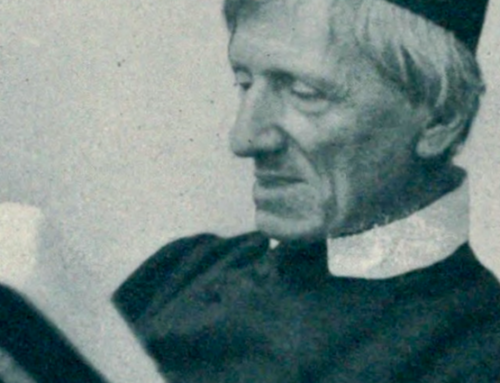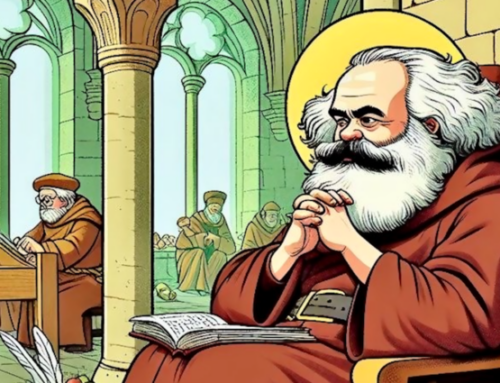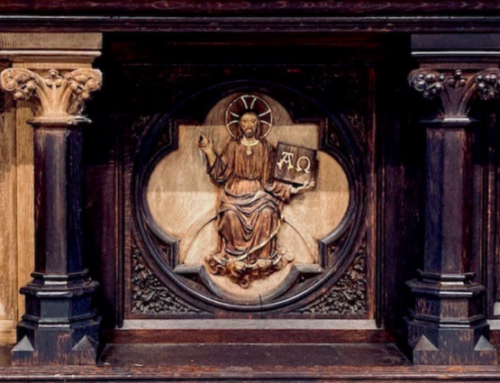To be sure, the Bible is a challenge to us: it presents us with a world we did not create, did not reason ourselves into. It is in some places thorny and obscure, in others lucid and consoling, and very often majestic and grand. The world of reason and research can help us make sense of it, can show the way to questions about the nature of biblical writings and how and why they came to be.
 As a writer, if I were asked to provide a list of my own favorite authors, I would without fail start off with David, Isaiah, Matthew, Mark, and Luke. To me the Bible is indispensable not only for what concerns faith but in the context of literature and of civilization. To quote A History of Western Civilization by Roland Stromberg: “The story of Israel as recorded [in the Bible] is filled not with abstract ideas or scientific discoveries but with events of profound and dramatic import, with ‘mighty acts of God’ and thundering words of the prophets.” Many have valued the Bible purely as literary creation, and this is legitimate enough. Yet for the believer the Bible is much more; it is a testimony to the activity of God in the world and the relations between God and man. As such, the entire Bible for the Christian, both Old and New Testaments, can be said to express the idea of incarnation, of God’s love and logos becoming manifest in creation and human lives. Unlike ordinary literature, the Bible has a supernatural element in its very makeup; the word of God has been clothed in human language and human passion.
As a writer, if I were asked to provide a list of my own favorite authors, I would without fail start off with David, Isaiah, Matthew, Mark, and Luke. To me the Bible is indispensable not only for what concerns faith but in the context of literature and of civilization. To quote A History of Western Civilization by Roland Stromberg: “The story of Israel as recorded [in the Bible] is filled not with abstract ideas or scientific discoveries but with events of profound and dramatic import, with ‘mighty acts of God’ and thundering words of the prophets.” Many have valued the Bible purely as literary creation, and this is legitimate enough. Yet for the believer the Bible is much more; it is a testimony to the activity of God in the world and the relations between God and man. As such, the entire Bible for the Christian, both Old and New Testaments, can be said to express the idea of incarnation, of God’s love and logos becoming manifest in creation and human lives. Unlike ordinary literature, the Bible has a supernatural element in its very makeup; the word of God has been clothed in human language and human passion.
Nowhere, surely, is the uniqueness of the Bible as literature more evident than in the Gospels. They don’t resemble anything else in Scripture, nor I would suppose anything in other ancient literary works. This highlights an important aspect of biblical literature. In speaking of the Bible as a single unit, we risk losing sight of how incredible variegated it is in style and content. The Gospels don’t read at all like a historical book of the Old Testament; nothing else in the Bible offers this sort of richly detailed and context-filled narrative of the life of a single great person.
As C.S. Lewis pointed out, some passages in the Gospels seem to jump forward in time with their strange specificity and eyewitness immediacy. Lewis cites the episode of Jesus writing with his finger in the sand as the woman accused of adultery stands by (Jn 8:6). One could also cite Jesus’ turning to look at Peter after his arrest (Lk 22:61), or the young man who left his linen cloth behind when he fled the scene of the arrest (Mk 14:51–52)—scenic details that could almost be actions in a play or screenplay. There is, in the same Gethsemane scene, a moment of overlapping action that no screenwriter could not have staged better, when Jesus finishes his discourse to the apostles just as Judas and the chief priests arrive. Such realism surely testifies to an observation of real events; as Lewis pointed out, fictional details invented in novelistic fashion simply aren’t an element in ancient literature.
When it comes to the Gospels it is clear that we are not dealing with ordinary literature. Rather, it is something of a new genre devised to describe an utterly novel experience—the experience of the life, death, and resurrection of Jesus—that shattered all conventional expectations and categories. A scholarly study entitled What Are the Gospels? argues that the four holy books most closely resemble Greco-Roman biography. Accepting this, we still can’t deny that the Gospels to a large degree break through familiar categories of literature, including biblical literature. Having been bred on the Gospels from childhood, we tend to lose sight of this. We think of them as the most natural and normal literature in the world when they are nothing of the kind.
This uniqueness of the sacred texts is fitting since Christ, too, fails to fit our formulae. He is not “just” a moral teacher, not “just” a healer and wonderworker. At the same time, while the orthodox do well to insist that Jesus’ primary mission was to die and rise again, it is well to remember that he also came to preach and to heal, and that these activities corroborated his divinity and supported his sacrifice.
The various revisionist versions of Christ created since the ages of faith have all been rooted in a failure or unwillingness to see the wholeness of Christ’s mission and purpose as recounted in the scriptures—of how all his activities and all the aspects of his complex personality worked together and supported each other. To anyone who reads the Gospels carefully, it is obvious that Jesus’ healings, exorcisms, prophesies, and authoritative moral teaching, which so rankled the Pharisees and other religious authorities, were for the purpose of corroborating his divinity no less than his sacrifice on the cross was. It has always seemed clear to me, in a word, that he was the supreme moral teacher because he was the Son of God, and that the Gospel writers imply as much.
Of course, to see this requires faith. I was recently struck by the frequent use in an 18th-century work of literature of an unexpected term to describe a falling away from religious faith. The word used was not “atheism” or “secularism” or any of the dry words typically used by us today. It was “infidelity.” The resonance of this word with faithfulness in marriage is, I think, very apropos. To lose faith is to be unfaithful to a partner—in this case, God himself. This bridal image or metaphor pervades the Old Testament, where Israel is likened to an unfaithful wife.
Father Dwight Longenecker has drawn attention in one of his essays to a form of skepticism among New Testament scholars, as shown in a seeming reluctance to admit the existence of prophesy in the Gospels. Thus, when Jesus is portrayed in the Gospel as referring to the imminent destruction of the Temple in Jerusalem, scholars assume this proves that the Gospel was written after the event. That Jesus as the Son of God actually prophesied the destruction of Jerusalem and that the evangelists faithfully reported it is unthinkable! Rather, we must assume that the evangelists presented Jesus as making a prophesy he didn’t really make. The naturalistic explanation rules the day.
Pope Benedict XVI in the preface to his Jesus of Nazareth has much to say about the supposed conflict between the “Jesus of history” and the “Christ of faith” and, by implication, on the corrosive effects of skepticism on biblical studies. He presents a frustrating quote from the German theologian Rudolf Schnackenburg, who said that the Gospels “want, as it were, to clothe with flesh the mysterious Son of God who appeared on earth.” To this our newer German theologian responds that “they did not need to ‘clothe him with flesh,’ because he had already truly taken flesh”!
In these scholarly instances cited by Fr. Longenecker and Pope Benedict—involving on the one hand a testimony to Jesus’ gift of prophesy, and on the other his full-fledged humanity as experienced by the disciples—the reality of the faith perspective is seemingly dismissed. That this is done by scholars whose job supposedly is to illuminate and inspire faith seems contradictory, to say the least. For without a perspective of faith, biblical exegesis is ultimately pointless. One is, at best, simply performing an analysis of a work of literature which may be of compelling historical or aesthetic interest but doesn’t affect us interiorly or make a difference in our lives.
To be sure, the Bible is a challenge to us: it presents us with a world we did not create, did not reason ourselves into. It is in some places thorny and obscure, in others lucid and consoling, and very often majestic and grand. The world of reason and research can help us make sense of it, can show the way to questions about the nature of biblical writings and how and why they came to be.
Rational analysis might illuminate, for example, what the process of composing a sacred text was like. As someone who is not a biblical scholar, I have often wondered about scripture-writing in its practical aspects. What made the sacred author decide to write in the first place? Where and how was it done? Was he aware of being divinely inspired? What was the ancient writing process like in all its details? What was the reading process like, for the novel genre of the gospel? How were the Gospels used in the early liturgy?
Another issue: it’s evident that the Gospels are not direct transcriptions of words and events. There are, as we all know discrepancies across the four Gospels in the way various episodes and Jesus’ precise words are recounted. It’s obvious that the holy writers “shaped” events in an artistic and theological way, to create particular points of emphasis or draw out a particular aspect of the truth of who Jesus was. To illuminate how and why these things were done in the cultural context of the primitive church is one of the paths on which reason and critical research can continue to lead us. It must, however, be a reason and research illuminated by faith—or at least a respect for faith—or there is no point to the enterprise. The classical adage credo ut intelligam—I believe so that I may understand—should guide all scholarly pursuits touching on religion.
The pitfall of dividing the Son of God into the “Jesus of history” and the “Christ of faith” is that we end up with a reduced, fragmented Jesus—either an “anti-Roman revolutionary working—though finally failing—to overthrow the ruling powers” or “the meek moral teacher who approves everything and unaccountably comes to grief” (here again the dry wit and wisdom of Pope Benedict).
There are many reasons for this reductive impulse. A disbelief in the possibility of the supernatural looms large. So does, I think, a failure to accept paradox as an essential feature of life and faith. Great Christian thinkers like Kierkegaard and Chesterton have emphasized the centrality of paradox, of a seeming contradiction that expresses a more complex truth. Christianity is full of paradoxes, and so is reality itself. Christ said that in heaven the first shall be last and the last first; that we must become like little children to enter heaven; and many more besides. Not only did Christ enunciate paradoxes, he was himself a magnificent paradox, true God and true man. Man is himself a paradox, oriented toward eternity yet existing moment-to-moment in time; aspiring to heaven yet mired in the earthly muck of sin and evil.
We don’t naturally go seeking paradox. We want simple, one-sided narratives and pat formulas. We would rather reduce things to the lowest common denominator than “seek what is above.” Encountering a mystery, our tendency is to explain it away. Just possibly, those exegetes who cannot accept the complex picture of Jesus in the Gospels cannot accept the paradox that he represents. Yet the recognition of paradox is arguably the sign of higher perception and insight. The multifaceted Jesus of the Gospels is superior even on an artistic level to any of the one-dimensional Jesuses of the revisionists. When we combine this complexity of depiction with the likelihood that the image presented is an authentic report, we have a strong motive for belief in this Person.
Also involved in this kind of skepticism, I submit, is an intellectual arrogance rooted in chronological snobbery. Once you accept the notion that wisdom and understanding are continually on the advance, it is logical to accept the idea that we understand reality better than a first-century Jew or Greek did, and that we can interpret their writings better than they. Fr. Longenecker puts the question succinctly when he asks: “Why should a theory dreamed up in universities in Europe in the twentieth century be closer to the truth than the statements of writers in the Middle East in the second century?”
As good scholars have shown us—scholars who are deeply immersed in the study of the Jewish milieu of Jesus’ time—there are any number of very good reasons for believing that the Gospels are historically reliable and mean what they say. The idea that the Gospels are fictions or allegories simply doesn’t hold up, historically or literarily. The evangelists invested their very lives in what they wrote about. These people who believed that God had come among them in the most unexpected and intimate way committed their experiences to writing as a permanent record; not only that, they put their lives on the line, some paying the ultimate price. One doesn’t do that for a fictional story, no matter how beautiful.
To use study of these texts of faith as a means to debunk faith—rather than purifying faith through the light of reason and reason through the light of faith—is, I think, to engage in destructive and ultimately self-defeating activity. A program of making the divine poetry prosaic will inspire nobody. The question scholars, and indeed all of us, must ask is this: Is it possible for something completely new to happen in the world? Or is it always business as usual? Can common sense and rationalism embrace everything that is and everything that has ever happened?
***
In the view of Catholic and Orthodox Christianity, Scripture is not a standalone religious authority, but is seen within a broader matrix of the church’s tradition, history, and way of life. Some readers might be familiar with the strain of Protestant Christianity known as Restorationism or Christian Primitivism. The guiding idea of this school of thought is that the Christian tradition is in continual decline—was indeed in decline from the very beginning—and in need of reformation. One avenue of thought into which this belief has developed is the idea that the true, authentic church is invisible or underground. (This entire question can of course be extended beyond the realm of religion. For example: is our civilizational heritage essentially corrupt, or is there a goodness in it that merits being preserved?)
It seems evident to me that such pessimism about tradition, like skepticism about the scriptural witness, cannot bear good fruit in the long run. While it’s true that reformation of self and institutions is always necessary, the impulse to mistrust the traditional, given order seems to me a sign that a Christian civilization has in some measure lost a basic kind of faith—a faith and confidence in the very idea of tradition as authentic and trustworthy, and a confidence in the Father’s providence and the Holy Spirit’s guidance of human beings in their spiritual journey. Without tradition as such we can’t really access the “primitive” stage of anything because tradition is the lifeline to the past. Tradition lies behind the Bible itself and was indeed the very means by which it has been passed down.
On some level I can understand the impulse behind restorationism. The reasoning would seem to be along these lines: God entrusted the tradition to human beings, so how do we know that human beings, being sinful and fallible, did not corrupt the tradition? This, as we know, was part of the crisis of confidence involved with the Reformation. Yet to accord the tradition but minimal respect, it seems to me, is to fail to acknowledge the way in which the divine and the human are intermingled in Christ and, consequently, in the church. Tradition is the mechanism by which the divine–human complex that is the church continues through time.
What’s remarkable is that this crisis in confidence in church tradition led, by degrees within the culture as a whole, to a skepticism about the Bible’s authority itself. Do the Gospels present an accurate picture of who Jesus really was (and is)? Were the authors perhaps biased or affected by ulterior motives? Did Jesus even exist? One can see the dead end to which such ever-expanding skepticism leads.
Yet there is hope, because in the light of both faith and reason we realize that no such radical doubt is necessary. When all our studies and inquiries are properly done, we discover with grateful wonder that everything hangs together. The historical tradition—including the Bible—is true and good. The canon of books is as it should be. The church was well-founded, and its history with all its blemishes and glories unfolded according to divine providence. Although the faithful are fallen and morally fallible, there is a basic trustworthiness to the sacred tradition itself that they have handed down (“We have this treasure in earthen vessels,” in St. Paul’s words). Unlike realities that are merely human, the Christian witness is not permeated with sin; it is indeed a vessel for spiritual health and salvation.
From the perspective of reason guided by faith, we can affirm that the Gospels present the essence of who Jesus was and what he said. We can therefore confidently affirm the fundamental goodness of the tradition, including the scripture that was composed to communicate the facts of the saving Life in fixed form. We can affirm, in short, the simple idea that God arranged things well.
We probably all know people for whom the need to affirm goodness not only is not a priority, it doesn’t even seem to register as an option. Such folk concentrate on corruption, on deception, on a bitter sense of the fallibility of all things, using reason to negate rather than to illuminate the “givens” of religion and increase gratitude and faith.
In a profound philosophical insight, the composer Igor Stravinsky once said that “the old original sin was a sin of knowledge; the new original sin is a sin of non-acknowledgment.” I would propose that the basic sin of mankind in the modern era is ennui. We have lost a simple sense of wonder at what is, we are forgetful of goodness, bored with nature and the essences of things, and too often lazy and faithless. We have grown so old that we have lost the freshness of faith, or enjoyment, of childlike happiness and gratitude. Our reason, a precious gift, has become so inflated, and so misplaced at times, that it would destroy what it should safeguard.
If we remain closed in on ourselves in this way, we can never achieve self-transcendence and openness to a truth that is outside us and that comes to us as a gift. Such a gift is the person of Jesus as comes to us through tradition, including Christianity’s authoritative writings. The life of Christ as presented in scripture is a datum that demands to be taken seriously on its own terms. It is an utterly unique event and must be taken as such; one cannot analyze it matter-of-factly and without passion. The written records we have are the work of men who were affected to their core by this event, disciples who gave voice to their wonder in writings that recorded faithfully what they witnessed.
One can enter deeply into the study and appreciation of many works of art; the greatest and most consequential of these works is the one which according to faith has been touched by the hand of God: Holy Scripture. What is needed is scholars who can illuminate these amazing texts by combining intellect with fidelity, who unite faith and reason in a common project, and who carry out the whole endeavor in humility and prayer.
***
Someone once said that there are only two basic storylines in the world. In the first, a person leaves home and goes on an adventure. In the second, a stranger comes to town and creates adventure. If we look to the Bible, we see that the Old Testament fits the first story type and the New Testament the second. Abraham heard the call of God to leave home and emigrate to a strange land to found a new people and a holy way of life. Jesus appeared in the midst of the world, and the world was never the same. It must be understood, however, that the person we are dealing with in the second story was a stranger—a stranger in a most radical sense—and that he brought adventure: true adventure. If we fail to understand this, nothing wonderful can come of the story.
The Imaginative Conservative applies the principle of appreciation to the discussion of culture and politics—we approach dialogue with magnanimity rather than with mere civility. Will you help us remain a refreshing oasis in the increasingly contentious arena of modern discourse? Please consider donating now.
The featured image is courtesy of Pixabay.







Thanks so much for this article. It very clearly contrasts the skeptic and believer in me.
This is a superb article!!!
Like the others, I too enjoyed this article. I am 76 years old, entering the closing chapters of my time on this created earth, and often finding myself reflecting back to origins. My Baptism as an infant, a few years later Sunday school began up to my confirmation in early teens. Church attendance/ Bible class flowed in and out through many trials, temptations, crosses to bear up to the point of leaving my home church at the age of 50 to where I attend now.
I realize now that this part of learning , reflecting, isn’t an act of yearning for the simple time of what was, but the maturing into understanding ‘the flow’ from the old into the new. The education received as a child remains the founding seeds that grew into what God in his grace carried me through life , in his word and sacraments.
This grace knowledge that God reveals of himself , about himself, that he gives to us, is so startling to our ears that we of ourselves can’t begin to comprehend it.
It is in his word that we find this revealing of who this One God is , in his being and essence. He is a Trinity, three persons, in One God. All three of one essence, one unity, never separated from himself, each person operating on behalf of the other. So on and so forth. Whenever I was humbled with the questions of “why” , or “how is this”, I found through patience, repentance, study and prayer, that fruitful knowledge of Him and what he has done for his creation , he continues to do in and by His Trinity: Father, Son and Holy Spirit, one God from all eternity.